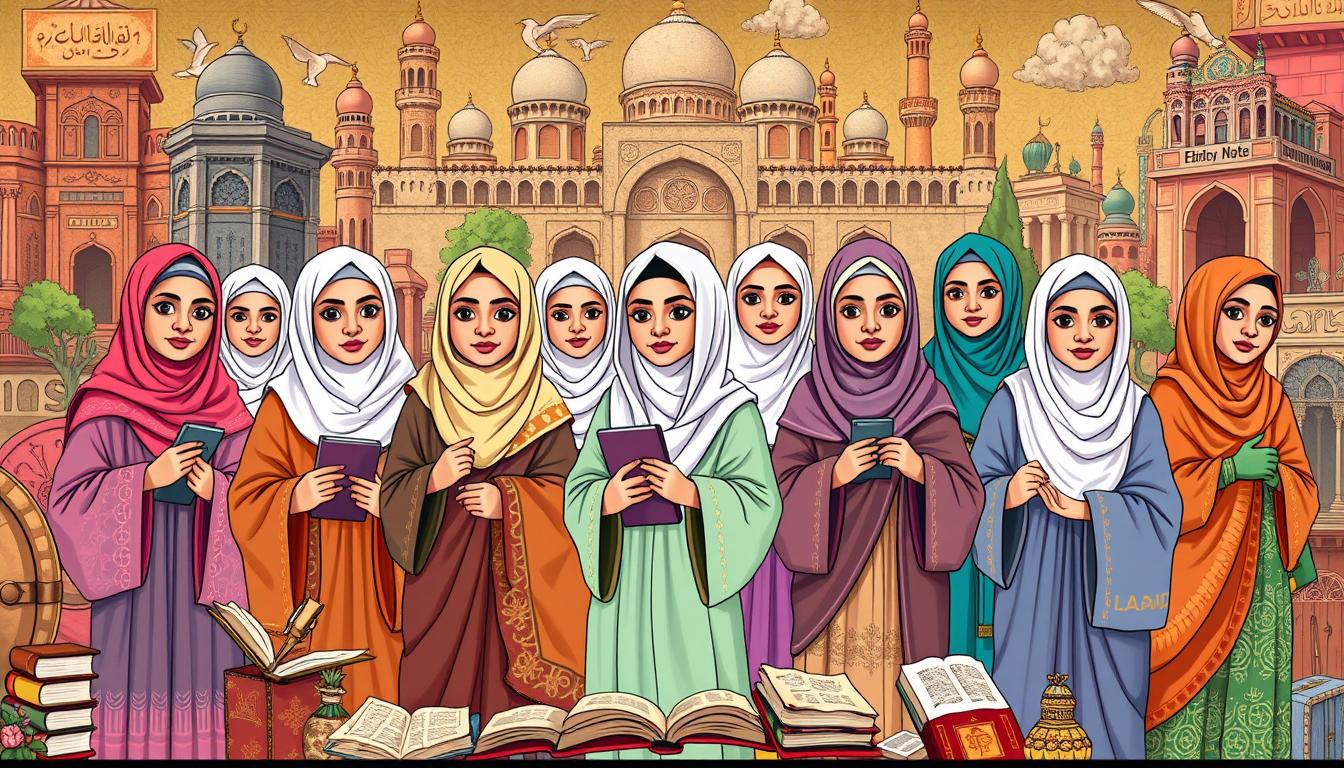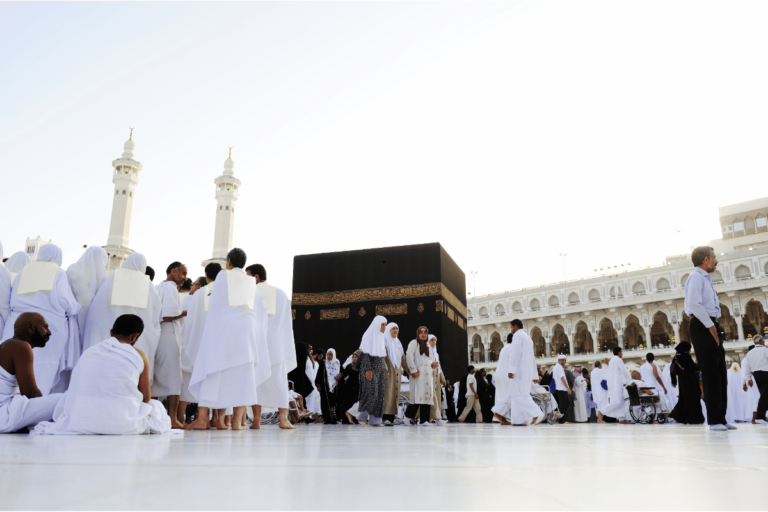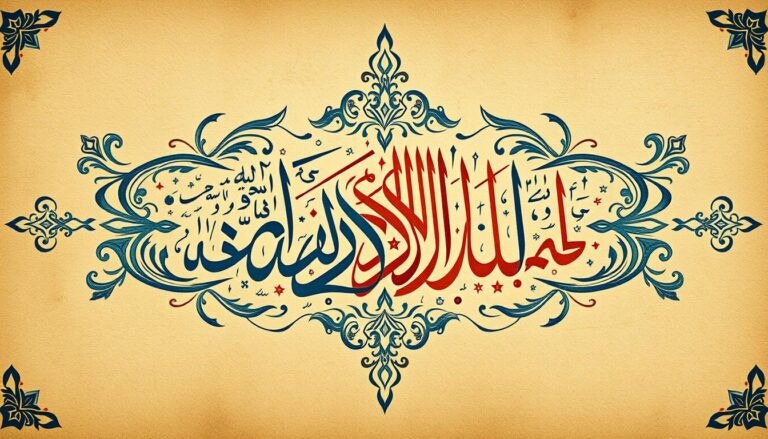10 Empowering Stories of Influential Muslim Women in History
Have you ever thought about the stories of powerful Muslim women who changed history? These women, from early Islamic times to today, have made a lasting impact. Their stories break down myths and show the many ways Muslim women have contributed over time.
Today, we see the impact of these women in action. The UAE wants to be among the top 25 for gender equality by 2021. Emirati women already hold a third of government positions. In the U.S., Rashida Tlaib became one of the first Muslim women in Congress in 2018.
These achievements are built on the work of earlier Muslim women leaders. Their stories of courage, faith, and perseverance still inspire us. These women, from scholars and warriors to mystics and queens, have influenced politics, religion, science, and culture.
Key Takeaways
- Muslim women have played crucial roles in shaping Islamic history
- Their stories challenge stereotypes about women in Islam
- These women excelled in diverse fields including politics, scholarship, and warfare
- Their legacies continue to inspire modern Muslim women
- Understanding their stories promotes gender equality in Islamic societies
The Legacy of Muslim Women in Shaping Islamic History
Throughout Islamic history, trailblazing Muslim women have made a lasting impact. They have influenced society, culture, and faith in many ways. Their contributions span centuries, touching every part of life, from scholarship to leadership and spiritual guidance.
Recognizing Female Contributions
Muslim women changemakers have been key in shaping Islamic history. Khadija bint al-Khuwaylid, a wealthy businesswoman, supported Prophet Muhammad early on. Fatima bint Muhammad, taught by her father, became a symbol of knowledge and compassion.
Breaking Stereotypes
Inspiring Muslim heroines have always challenged stereotypes. Zainab bint Ali showed great courage during the Battle of Karbala and gave a powerful sermon to Yazid. Hafsa bint Umar played a crucial role in preserving the Quran, showing women’s capabilities in religious scholarship.
Diverse Roles in History
The impact of Muslim women is seen in many fields:
- Aisha bint Abu Bakr narrated over 2,000 hadith and taught at schools
- Sumayyah bint Khayyat became the first martyr of Islam
- Nafisa Bint Al-Hassan was a renowned scholar in Islamic jurisprudence
- Fatima al-Fihri founded the world’s first university and Madrasah
These women’s stories create a rich tapestry of devotion, faith, and compassion. They connect past, present, and future generations of Muslims worldwide.
Khadijah bint Khuwaylid: The First Muslim and Supporter of the Prophet
Khadijah bint Khuwaylid was born in 555 CE in Mekka. She is a key figure in Islamic history. After her father’s death, she managed the family business and grew it.
She was known for her kindness. She helped the poor, sick, disabled, widows, and orphans.
At 40, Khadijah married Muhammad, who was 25. They were together for 25 years and had six children. When Muhammad got his first revelation, Khadijah was the first to believe, earning her the title “First Believer.”
Khadijah supported Muhammad and the early Muslims. She gave him money to preach Islam. Her faith and support helped the religion grow.
“The best women of Paradise are Khadijah bint Khuwaylid, Fatimah bint Muhammad, Mary bint Imran, and Asiya bint Muzahim.”
Khadijah’s impact on Islam is still felt today. She died in 619 CE at 65. Her life inspires Muslim women, showing their potential in leadership, business, and faith.
Aisha bint Abu Bakr: Scholar, Political Leader, and Wife of the Prophet
Aisha bint Abu Bakr was a key figure in Islamic history. Born in Mecca in 614 CE, she was a wife of Prophet Muhammad. Her impact on early Islam was huge.
Transmitting Islamic Teachings
Aisha was a master in sharing Islamic knowledge. She memorized the entire Qur’an and shared about 2,300 hadith. This made her a top scholar.
Political Involvement
After Prophet Muhammad’s death, Aisha was a leader in the Muslim community. She fought in battles and stood up for justice and equality. Her biggest moment was leading an army to Basra, known as the Battle of the Camel.
Legacy and Controversy
Aisha’s legacy is both inspiring and debated. Her smarts, knowledge, and leadership challenge common views on women in Islam. Despite some controversies, her impact on Islamic teachings and society is clear.
“Seek knowledge even if you have to go as far as China.”
Aisha’s life shows the value of knowledge and education in Islam, for everyone. Her story motivates Muslim women leaders today.
Fatima al-Zahra: Daughter of the Prophet and Mother of Imams
Fatima al-Zahra is a key figure in Muslim history. She was born five years before Muhammad’s call to prophethood. Her life is a source of inspiration for many.
At 18, Fatima married Ali ibn Abi Talib. This union started a legendary family. They had four children: Hassan, Husayn, Zainab, and Umme Kulthoom. Hassan and Husayn became important Imams in Islamic history.
Fatima was known for her deep devotion. She was called “Umm Abiha” (Mother of her Father) by Muhammad. She showed great kindness by giving her wedding dress to someone in need, following the Quran’s teachings.
Her life was filled with selflessness and a quest for justice. Fatima and Ali once fasted for three days, sharing their food with the poor. After Muhammad’s death, Fatima fought for her rights, delivering a powerful sermon that still inspires today.
Fatima al-Zahra’s impact on Muslim history is immense. Her teachings on compassion, justice, and devotion continue to inspire people around the world.
Nusayba bint Ka’b: The Warrior Woman of Early Islam
Nusayba bint Ka’b was a true trailblazer in early Islamic history. Her story breaks down stereotypes and shows how women helped shape the faith.
A Fierce Defender of the Prophet
Nusayba showed her loyalty to Prophet Muhammad at the Battle of Uhud. She bravely protected him from arrows, getting eleven wounds. The Prophet praised her bravery, calling her a true Muslim woman changemaker.
Beyond the Battlefield
Nusayba’s dedication to Islam went beyond one battle. She was one of two women who took the Second pledge at al-Aqabah. She also fought in battles like Al-Hudaybiyah, Khaybar, and Hunayn.
A Lasting Legacy
Nusayba’s impact lasted long after her death in the 13th Hijri year. Leaders like Abu Bakr Al Siddique and Omar Bin Al Khattab honored her bravery. Her story motivates Muslim women changemakers today, showing courage and faith have no gender limits.
“The conduct of Nusayba on the day of Uhud was better than the conduct of many men.”
Nusayba bint Ka’b’s life is a powerful reminder of women’s roles in early Islam. Her bravery and commitment inspire trailblazing Muslim women through the ages.
Zaynab bint Ali: The Eloquent Granddaughter of the Prophet
Zaynab bint Ali was a powerful figure in Muslim history. She was born in Medina around 626 CE. She was the granddaughter of Prophet Muhammad and the daughter of Fatimah bint Muhammad and Ali ibn Abi Talib.
Her life showed the strength and wisdom of influential Muslim women. Zaynab was known for her piety and devotion. She spent her nights in prayer and days fasting.
Her knowledge of Islam earned her respect. She memorized the Quran and was often asked for advice by her brothers.
The Battle of Karbala in 680 CE was a turning point in her life. At 54, she saw her brother Al-Hussain and 72 family members martyred. Yet, she remained strong in her faith.
“By Allah, you have not extinguished our light, nor have you silenced our argument.”
After the battle, her speeches were crucial. They preserved Islam’s message and defended her family’s honor. Her words led to the release of her family and the return of their wealth.
Today, Zaynab bint Ali is seen as a patron saint of Muslim women. Her mausoleums in Damascus and Cairo are visited daily, especially by women seeking her help. Her life continues to inspire Muslims everywhere, showing the lasting impact of powerful Muslim figures.
Rabi’a al-Adawiyya: The Mystic and Poet
Rabi’a al-Adawiyya is a standout in Islamic history. Born in Basra in the 8th century, she came from humble beginnings. She became a famous Sufi mystic and poet.
Her life shows the strength of faith and determination. Despite poverty and hardship, Rabi’a chose spiritual devotion. She turned down marriage proposals and lived alone, focusing on her bond with God.
This choice was rare for women back then. It made her a pioneering Islamic feminine role model.
Rabi’a’s teachings focused on Divine Love. She believed loving God for His sake alone was the most pure worship. Her poetry beautifully expressed this spiritual bond:
“I love You with two loves – a selfish love and a love that is worthy of You. As for the selfish love, it is that I think of You, of none other than You. As for the love that is worthy of You, it is that the veils which hide You fall, and I see You.”
Her teachings reached both men and women, challenging traditional views. Rabi’a’s teachings opened doors for future female saints in Sufism. Her life inspires those seeking spiritual growth and independence.
- Lived to be in her 80s
- Founder of the Sufi school of “Divine Love”
- Rejected societal norms for women of her time
- Influenced both male and female disciples
Rabi’a al-Adawiyya’s legacy inspires Muslims today. Her story shows that spiritual growth and impact are not bound by gender or status. She is a beacon of wisdom, devotion, and independence among Islamic feminine role models.
Lubna of Cordoba: The Intellectual Powerhouse of Al-Andalus
Lubna of Cordoba is a standout among Muslim women leaders. She went from being a slave to a royal secretary in the Umayyad court of Cordoba. This shows the chances women had in Islamic Spain.
From Slavery to Royal Secretary
Lubna’s journey to fame in 10th-century Cordoba was amazing. She broke free from slavery, showing her smarts and willpower. Her skills in math, grammar, and poetry impressed the royal court, making her a royal secretary.
Contributions to Knowledge
Lubna made big impacts in math and library science. She was key in managing the royal library, which had over 500,000 books. Her efforts helped make Cordoba a key learning spot in medieval Europe.
Legacy of Female Scholars
Lubna’s success opened doors for other female scholars in Islamic Spain. She showed women could pursue knowledge in Muslim societies, breaking barriers. Her legacy inspires talks about women’s roles in Islamic scholarship today.
“Lubna’s story reminds us that Muslim women have been at the forefront of intellectual pursuits throughout history, shaping the course of Islamic civilization.”
Arwa al-Sulayhi: The Queen of Yemen
Arwa al-Sulayhi was a remarkable Muslim woman leader. Born in 1048 CE, she ruled Yemen for 71 years. Her reign was a significant time for women in power.
Arwa’s achievements were groundbreaking. She was the first queen regnant in the Muslim world. She was also the only woman to have the khutbah, a symbol of Muslim monarchial status, proclaimed in her name in mosques.
During her reign, Arwa made significant contributions to Yemen:
- Founded several mosques, including the renowned Queen Arwa Mosque
- Oversaw significant infrastructure projects
- Played a crucial role in spreading Ismaili Islam in Yemen and India
Arwa’s legacy goes beyond her political achievements. She was awarded the prestigious title of Hujjah in the Isma’ili branch of Shia Islam. This recognized her spiritual leadership. Her story shows the influence and capabilities of Muslim women leaders throughout history.
“Arwa al-Sulayhi’s reign demonstrates that women in medieval Islamic societies could wield significant political power and contribute to the cultural and religious landscape of their time.”
Conclusion
The stories of these Muslim women changemakers highlight the rich history of Islam. Khadijah bint Khuwaylid supported the Prophet, and Fatima al-Fihri founded the oldest university. These women have made a lasting impact on their faith and society.
These women’s roles challenge common misconceptions about women in Islam. The Quran teaches that men and women are equal. Aisha bint Abu Bakr and Nusayba bint Ka’b are examples of their diverse contributions.
Reflecting on these stories, we see the ongoing influence of Muslim women. Figures like Tawakkol Karman, a Nobel Laureate from Yemen, carry on this legacy. These stories show us the crucial role women have played and continue to play in Islamic culture and society.
Source Links
- 10 Inspiring Muslim Women We Should All Look Up To
- Great Women of Islam: Life lessons they can teach us
- 10 Inspiring Mothers from Islamic History – Muslim Women Australia
- 10 Influential Women From Islamic History
- Four strong Muslim women in history that helped shape an equal future for young girls today. | Human Appeal USA
- Khadijah, First Woman of Islam
- Khadijah (ra): His First Love, Our First Mother | Yaqeen Institute for Islamic Research
- Aisha bint Abu Bakr: A Trailblazer for Women’s Rights – Part I – World Hijab Day
- Aisha: The intellectual legacy and political life of the Prophet’s young wife
- Aisha bint Abu Bakr (ra): The Love Story | The Firsts | Yaqeen Institute for Islamic Research
- The Story of Hazrat Fatima (sa), daughter of the Holy Prophet
- 5 Beautiful Lessons From The Epic Life Of Fatima Al Zahra (SA) – The Zahra(s) Trust Canada
- Fatima al-Zahra – The Spring of Inspiration
- Nusaybah Bint Ka’ab – The First Woman Warrior of Islam
- Nusaybah bint Ka’ab (ra): The Woman Warrior | The Firsts | Yaqeen Institute for Islamic Research
- Speaking Truth to Power: Eloquence of Prophet’s Granddaughter | About Islam
- Prophet’s Grand-daughter: A Woman of Courage & Dignity | Page 2 of 2 | About Islam
- Zaynab bint ʿAlī | Encyclopedia.com
- Think women have no place in Islam? Take a look at these 10 influential historical figures…
- The Deputy of Maryam – The Mystic Rābi‘a al-‘Adawiyya in Light of the Qur’anic Mary – Maydan
- Was Rabi’a Basri – The Single Most Influential Sufi Woman – A Feminist?
- American Muslim women, religious authority, and activism: more than a prayer
- 50014
- Full text of "All About History Treasure Trove"
- 15 Important Muslim Women in History
- Arwa al-Sulayhi
- Great women in Islamic History: a forgotten legacy – FUNCI – Fundación de Cultura Islámica
- 11 Famous Muslim Women in Islamic History
- Women in Islam







